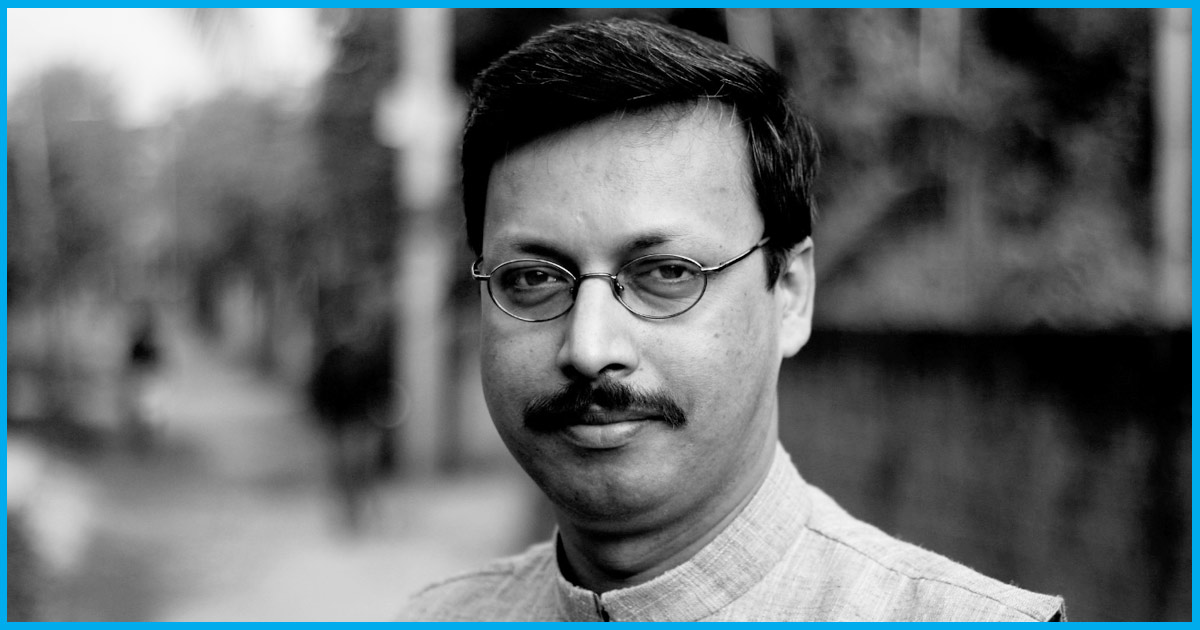
Atal Ji's BJP Cannot Be Compared With Modi's BJP, Says Prodyut Bora, BJP IT Cell Founder
30 Jun 2018 9:45 AM GMT
As a managing consultant, Prodyut Bora knew his opinions and ideas would change the functioning of companies. With that thought in mind, he joined the Bharatiya Janata Party with the hope of changing the country for the better. In 2007, under the tutelage of Mr Rajnath Singh, Mr Prodyut Bora became the founder of the BJP IT cell. Eleven years down the line, he is in complete awe and shock of the monster that the IT cell has become. Bora, now an entrepreneur in clean air technologies with an office in Gurgaon shares with The Logical Indian his experience of being in the Bharatiya Janata Party and his reason for leaving the party in 2015.
You were a member, and then the founder of the BJP IT cell. Why did you join BJP?
- It’s all because of Atal Ji. I am a fan of Atal Bihari Vajpayee. I think he is a person who deserves to come back to power again.
What kind of influence did Atal Bihari Vajpayee have on you? What inspires you most about him?
- I like him because of his broad-mindedness, his liberal nature. He is a man who led a 23 party coalition. That had the likes of Farooq Abdullah, that had the likes of Mamata Banerjee, Jayalalitha. Now the fact that a man can bring together so many discarded political forces, it says something about the man. His defence Minister was George Fernandes, his President was APJ Abdul Kalam. So his broad-mindedness and liberal outlook are what attracted me.
You started the BJP IT cell when the craze about Facebook and Twitter was not as much as it is now. So what was your basic expectation from it?
- The expectations were three-fold. The first expectation was to automate the party, you know internal automation. The second one was to reach to voters and the third was to inform the party on IT policy matters.
Right now the BJP IT cell is all about promoting Hinduism and running smear campaigns against anyone who does not agree with their ideology. What was it like when you first started it?
- Well, I think it was the age of innocence. And I think we all thought that social media needed democratisation of news consumption. Because you know, from time to time, media was controlled by big business. So, the problems of social media or digital technology allow anybody to be news publishers. Before getting to an Op-Ed page was so tough, now you have blogs and posts. You can write your own opinion on Facebook page. It was the beginning of the democratisation of media consumption. We thought that at that age we were right. We were all innocent.
We know how an IT cell works. Right now it is a legitimate job to be working with the BJP IT cell. What do you have to say?
- See, you know, when I joined the BJP, I thought that was the time of the age of innocence. Politics is somewhat considered as a “seva”. It was not a job or a profession but a vocation. There is quite a lot of difference between vocation and profession. Now with all of the changes… we have seen the transformation of political research from being a vocation to being a profession. And now, as the saying goes, ”All is fair in love and war”, politics is taking the same route. For example, cricket in the 1970s and 1980s was a gentleman’s game, but the T20 match is more like a spectacle. Now, the sport has transformed from a gentleman’s game into a spectacle and I think politics is undergoing a similar transformation.
When do you think the transformation happened from innocence to culpability in case of politics?
- I think the starting point would be the Lok Sabha elections of 2014… misinformation, fake news, character assassination… as far as I can recall, I think that was the starting point.
In your resignation letter, you said that Amit Shah has an individualised style of decision-making. You also said, following him, many junior Amit Shahs were born. Can you elaborate on that?
- Any organisation, whether a political organisation, a business organisation, an NGO, or a religious organisation, everybody follows the style of its leader. So, you have a leader who believes in collaboration and consensual decision-making, then that becomes the culture of the organisation. Similarly, in this case, the leadership has changed because some are very centralised and individualistic in the party and culture has trickled down in this organisation.
Who do you think had more power in decision-making, Mr Amit Shah or Mr Narendra Modi?
- Well, one is in the government, one is at the party, but both of them are prominent and they both have different kinds of work and they work collaboratively.
Also, in your resignation letter, you mentioned that Modi did not adhere to the promise of sending back sending back Bangladeshi immigrants from Assam?
- One of the campaign promises of BJP in Assam was that after 16 May 2014, Bangladeshi immigrants were to be sent back. This promise won Assam because of the Assam agitation that started in 1979. From 1979 to 1984, in the span of five years, there was a student resistance for discord. The alpha insurgency group became the starting point of insurgency in Assam. Now, in 2014 when Modi visited and promised to send back all Bangladeshi immigrants after he formed the government, Assam was won over. From 1984 there were many years of insurgency and till today, not a single immigrant has been sent back to Bangladesh.
Are you for or against the deportation of Bangladeshi immigrants?
- It’s a refugee problem and not a simple “for or against” problem. This problem has led to a huge amount of social unrest and a solution needs to be found for that. The first thing is, that all illegal migrants must be identified and sent back and secondly, you need to have a humane refugee policy. Two things, you need stricter laws and a humane refugee policy. If you think for humanitarian reasons a person needs to be given shelter, then give him shelter. Today, the whole problem is uncertainty. Everywhere.
Right now, are you are a member of a party called the Liberal Democratic Party (LDP)? What are the objectives of your party?
- Well, India is a secular civilisation. it has always been about liberal values. There are multiple ways to reach the truth. You can be a vegetarian, a non-vegetarian. You believe in God, you do not believe in God, whatever it maybe. Irrespective of what one believes in and each way is equally balanced. This is what makes our country what it is. So our party is similar to this. A liberal ethos.
How has the condition of the party changed in the last four years?
- Previously in the party, the situation was what the President decides, the team decides. This was a very popular slogan. It was a collaborative thing, simple, everybody used to work together and all. Somewhere in the process, the ethos moved to a completely centralised individual length in the organisation.
One thing that characterises the BJP government is the of a decorum. There is Sanskar in the party, you behave with people in a particular way, you share a particular kind of paternal relationship with people.
The other day, Sushma Swaraj ji was trolled. In that earlier BJP, a leader of Sushma Swaraj’s stature, there was no question of somebody speaking against her like that. The Congress spoke up, but BJP did not say a word against it. So, as there is no comparison between Mahatma Gandhi’s Congress and Sonia Gandhi’s Congress. Similarly, there is no comparison between Atal ji’s BJP and Modi’s BJP.
Why doesn’t Modi speak up against necessary topics?
- I think that is because of complete arrogance. This is not me saying this, this is what all the media people out there are saying. I think it is a well thought out strategy of maintaining a certain charisma, a certain brand. There is a saying in Hindi “Saanp bhi maare aur laathi bhi na tute” (the closest english translation is possibly “killing two birds with one stone”). This is how he does very good brand management and image management.
If the opposition can combine, like they did in Karnataka and almost did in Gujarat, a strong fight can be put up against BJP in the 2019 election, says Mr Bora. He also says that the kind of electoral strength that BJP has today is reduced in the last four years and hence, it will be difficult for them to gather majority in the upcoming election.
 All section
All section













